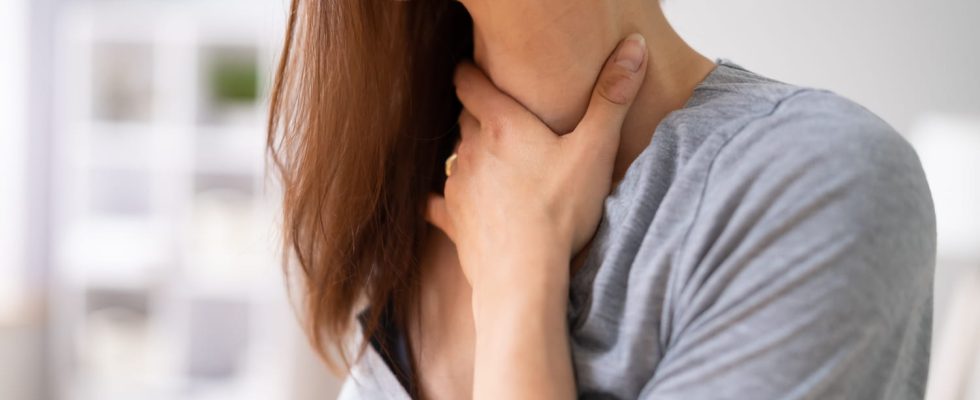A sexually transmitted infection, anal gonorrhea is treated only with antibiotics. Carrying out screening is essential in the event of a risky relationship.
What is anal gonorrhea?
Anal gonorrhea is a sexually transmitted infection (STI) caused by a bacteria called gonococcus. The reservoir of this germ is uniquely human. This is a fairly common infection, increasing regularly, although scientists have noted a drop in contamination during Covid, in 2020-2021.
“It is an infection of the mucous membranes which affects the urinary tract,genital tract, throat, anus and rectum. Direct contact between two of these regions is therefore necessary to transmit gonorrhea. Transmission can also occur if fingers or an object are used during intercourse“, underlines Dr François Pigot, proctologist. It is also possible to contract gonorrhea from an asymptomatic carrier subject which is not trivial because anorectal or genital pharyngeal infections are often asymptomatic. “The urinary form is often the most noisy in terms of symptoms.”
What are the symptoms of anal gonorrhea?
Some people carry the bacteria but are asymptomatic. When gonorrhea affects the anus and rectum, the symptoms include: false needs, discharge of mucus, pus, bleeding and pain. “If we allow it to evolve, it can lead to abscess. Without treatment, symptoms may lessen over time. The person then becomes asymptomatic but the germ does not disappear. In other areas, gonorrhea causes:
- For the throat: the effect of severe sore throat, pus, lymph nodes, fever;
- At the urinary level: a feeling of burning, a very frequent urge to urinate, flow;
- At the genital level: secretions and burns.
What incubation time?
The incubation time for anal gonorrhea is 2 to 7 days.
The diagnosis is easily made by a sample from cotton then examined in the laboratory.
What are the treatments for anal gonorrhea?
Anal gonorrhea can only be treated with treatment. antibiotics : broad-spectrum cephalosporins in the form of a intramuscular injection. “However, gonorrhea has the particularity of becoming resistant to antibiotics. This is probably one of the germs that will be difficult to treat with antibiotics in a few years“, explains Dr. Pigot. It is therefore necessary to treat gonorrhea correctly the first time. If the germ is not eliminated immediately, it will weaken but will then develop resistance.
What healing time?
Patient recovers from gonorrhea in a week to 15 days maximum. Patients should consult after 2 or 3 weeks to check that they no longer carry the germ.
The importance of prevention
During sexual intercourse, it is important to use a condom, the only contraceptive that provides a barrier to various sexually transmitted infections. THE screening should be done as soon as there is any doubt and is strongly recommended for people at risk, that is to say men who have sex with other men or even sex workers, to avoid the spread of the disease.
Thanks to Dr François Pigot, proctologist at the Maison de Santé of Bagatelle hospital, in Bordeaux.
